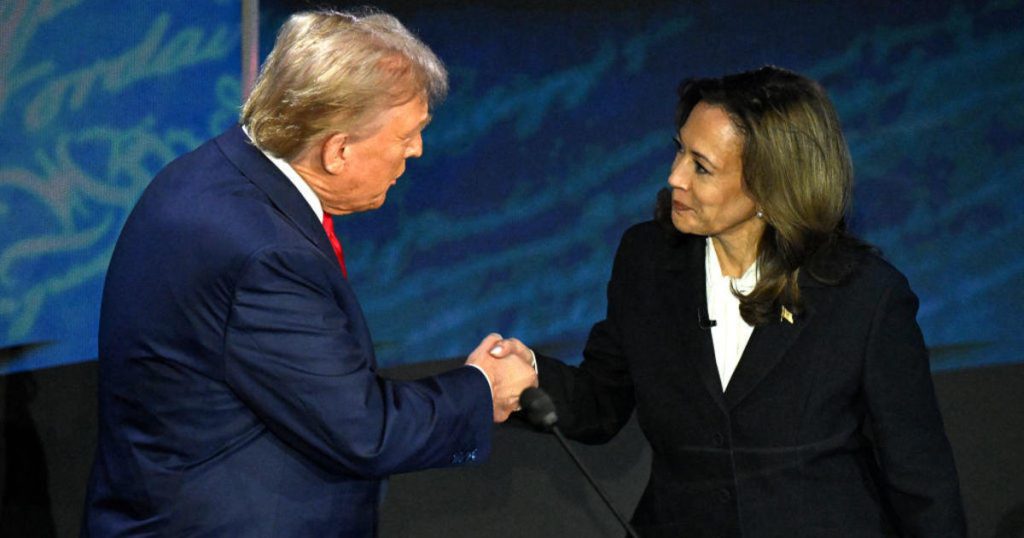Kamala Harris recently discussed the ongoing conflict between Israel and Hamas, emphasizing Israel’s right to defend itself against terrorism while also calling for a two-state solution. Harris expressed support for Israel’s ability to defend itself, particularly as it relates to Iran. In response, Donald Trump accused Harris of hating Israel and the Arab population, claiming that the whole region would be “blown up” if she was in power. Harris refuted these claims, calling Trump “weak and wrong” on foreign policy and accusing him of trying to divide and distract. She also criticized Trump for being easily manipulated by dictators and autocrats who may be rooting for his return to the presidency.
During the discussion, Harris highlighted the importance of understanding how the conflict between Israel and Hamas has escalated, referencing a specific incident where Hamas targeted Israelis attending a concert resulting in significant casualties. She stressed the need for a comprehensive approach to resolving the conflict and achieving a two-state solution, emphasizing the importance of ending the violence and charting a path forward. Harris reiterated her support for Israel’s right to self-defense while also recognizing the complexities of the situation and the impact it has on the region.
In response to questions about negotiating a cease-fire between Israel and Hamas, Trump shifted the focus to his administration’s track record, specifically highlighting his handling of relations with Russia and Ukraine. Trump claimed that Harris harbored negative feelings towards Israel and the Arab population, suggesting that her approach to the conflict would lead to further instability. Harris pushed back against these claims, asserting that they were untrue and part of an attempt to distract from the real issues at hand. She characterized Trump as weak on foreign policy and susceptible to manipulation by authoritarian leaders.
Throughout the discussion, the contrasting views of Harris and Trump on the Israel-Gaza conflict and foreign policy in general became apparent. Harris emphasized diplomacy, dialogue, and a commitment to finding a peaceful resolution, while Trump focused on radical solutions and personalized attacks. Harris positioned herself as a defender of democratic values and a critic of authoritarian regimes, contrasting Trump’s apparent coziness with dictators and autocrats. The exchange highlighted the stark differences in approach between the two politicians, with Harris advocating for a nuanced and thoughtful strategy and Trump resorting to inflammatory rhetoric and personal attacks.
Overall, the conversation surrounding the Israel-Gaza conflict and foreign policy during the discussion demonstrated the contrasting approaches and perspectives of Harris and Trump. Harris emphasized the importance of understanding the root causes of the conflict, supporting Israel’s right to self-defense while also calling for a comprehensive resolution that addresses the underlying issues. Trump, on the other hand, focused on divisive rhetoric, personal attacks, and deflecting attention away from his own record. The exchange shed light on the different leadership styles and priorities of the two politicians, with Harris advocating for a diplomatic approach and Trump resorting to aggressive tactics.


